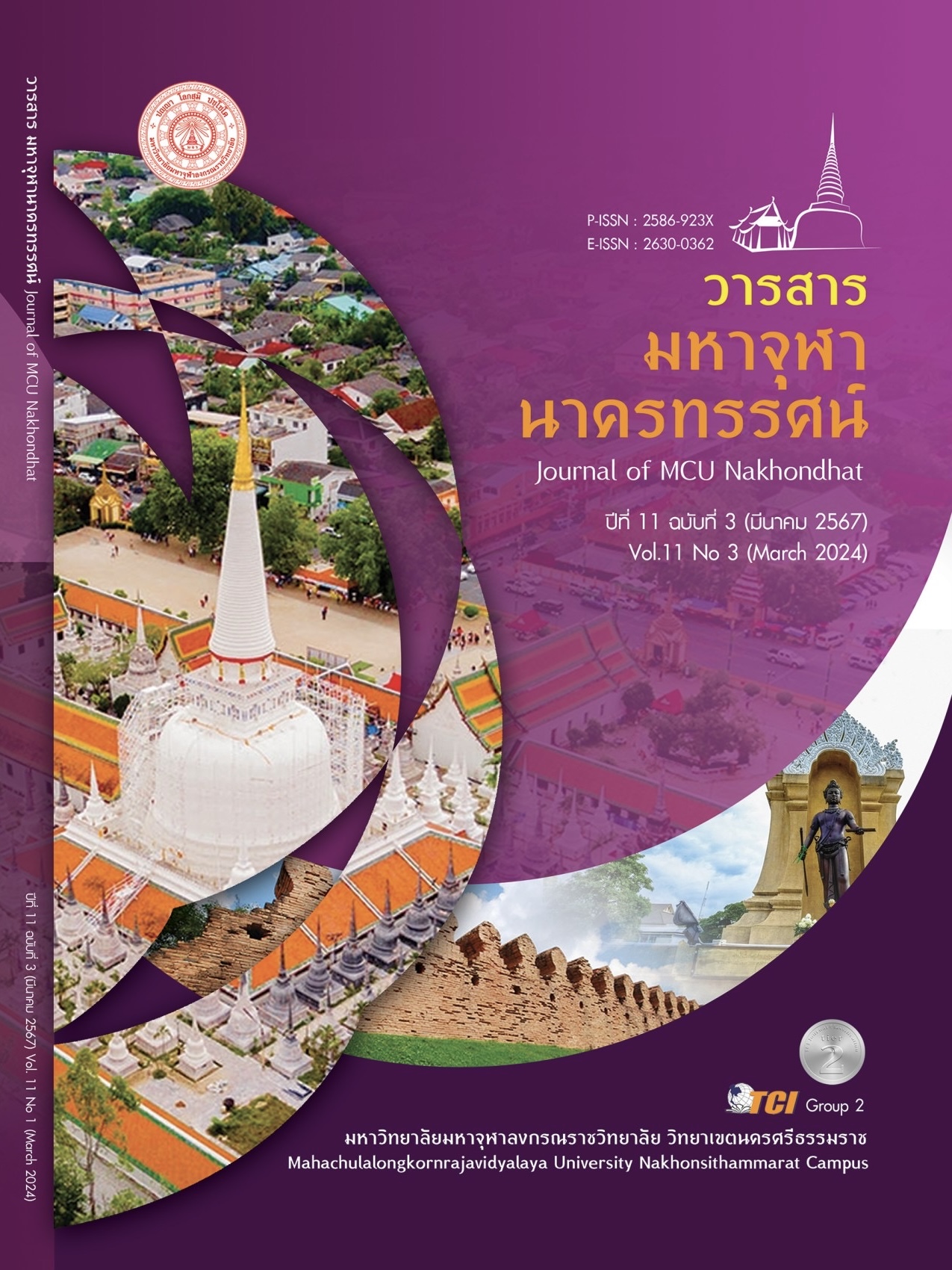BUILDING DIGITAL POTENTIAL IN MANAGING GOVERNMENT ORGANIZATION IN RESPONSE TO TECHNOLOGICAL CHANGE
Main Article Content
Abstract
This article will discuss ideas for building digital potential in government organization management in the era of using digital technology in organizational management. In order to strengthen standards and raise the level of work of government organizations to be more efficient. In the context of a world that is fully transitioning to the digital era. Which at present, with the structure of government organizations being large and complex compliance with rules or regulations that support the operations of government organizations in transforming into digital organizations. The management of public sector organizations is strict and has rules and regulations. Management without the ability to use technology to effectively manage government organizations. This makes the management of government organizations in many sectors complicated in management and causes various problems. Building digital potential in government organizations is therefore one of the important success factors for increasing efficiency and effectiveness in managing government organizations in this era. In order to lead to further development and support for changes occurring in the digital environment for government organizations. Therefore, in digital organization management for government organizations to be successful. There must be real development in building digital potential in government organizations which must be developed simultaneously in three dimensions, namely 1) development and deployment of digital technology 2) development of digital procedures and 3) development of personnel. To serve as a guideline for preparation of government organizations towards entering the digital era which increases efficiency and effectiveness in managing government organizations to drive government organizations towards digital sustainability.
Article Details

This work is licensed under a Creative Commons Attribution-NonCommercial-NoDerivatives 4.0 International License.
References
ชัยรัตน์ ชามพูนท และคณะ. (2564). การพัฒนาทรัพยากรมนุษย์ในยุคการเปลี่ยนฉับพลันทางดิจิทัล. วารสารครุศาสตร์ปริทรรศน์, 8(1), 195-208.
ธีรวี ทองเจือ และปรีดี ทุมเมฆ. (2560). แนวทางการพัฒนาทรัพยากรมนุษย์ในศตวรรษที่ 21 มิติด้านการศึกษา. วารสารสันติศึกษาปริทรรศน์ มจร, 10(1), 1-14.
ปกรณ์ ศิริประกอบ. (2562). พาราไดม์ทางรัฐประศาสนศาสตร์ แนวคิด ทฤษฎีและการนำไปปฏิบัติจริง. พิมพ์ครั้งที่ 5. กรุงเทพมหานคร: สำนักพิมพ์จุฬาลงกรณ์มหาวิทยาลัย.
พิมพ์ชนก ไชยรัตน์. (2562). การพัฒนาทรัพยากรมนุษย์เพื่อสนับสนุนให้เกิดองค์กรแห่งนวัตกรรม. ใน สารนิพนธ์ปริญญาการจัดการมหาบัณฑิต สาขาการจัด. มหาวิทยาลัยมหิดล.
พิษณุ รัตนปริคณน์. (2561). การปฏิรูประบบบริการงานภาครัฐในประเทศไทย ใน อุทัย เลาหวิเชียร และสุวรรณี แสงมหาชัย (บรรณาธิการ). การบริหารงานภาครัฐในมิติต่าง ๆ ของไทย. กรุงเทพมหานคร: นราธิป พริ้นติ้ง.
วรเดช จันทรศร. (2564). หลักการกำหนดนโยบายของรัฐ. กรุงเทพมหานคร: มูลนิธิตากสินเพื่อพัฒนาการศึกษา.
สำนักงานพัฒนารัฐบาลดิจิทัล (องค์กรมหาชน) 2566. (2566). การพัฒนาไปสู่เป้าหมายของการเป็นรัฐบาลดิจิทัล. เรียกใช้เมื่อ 20 ธันวาคม 2566 จาก https://www.dga.or.th/
สุภัทรศักดิ์ คำสามารถ. (2563). แนวทางการบริหารการศึกษาในยุคดิจิทัลดิสรัปชั่น. วารสาร Journal of Modern Learning Development, 15 (2), 245-259.
HRNOTE Asai. (2022). การพัฒนาองค์กร (Organization Development : OD) ให้ก้าวสู่ความสำเร็จ. เรียกใช้เมื่อ 20 December 2022 จาก https://th.hrnote.asia/orgdevelopment/190610-organization development-od/
JobHACK. (2021). 3 วิธีคิดปรับตัวให้ทันในยุคดิจิทัล. สำหรับผู้นำหรือเจ้าของธุรกิจ! เรียกใช้เมื่อ 20 December 2022 จาก https://jobhack.co/articles/how-to-transform-digital/
United Nations. (2022). will be a critical year for accelerating efforts on the SDGs. เรียกใช้เมื่อ 20 December 2022 จาก https://www.un.org/en/content/summits2022/


